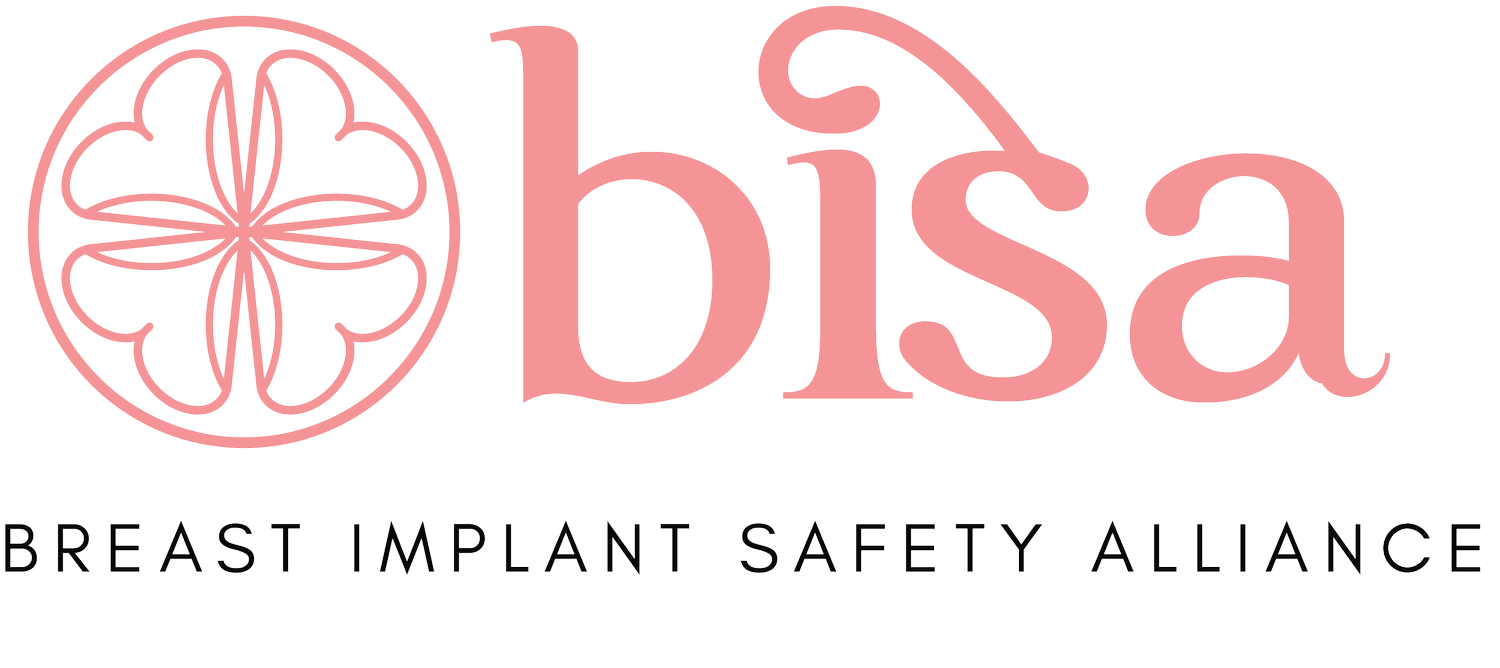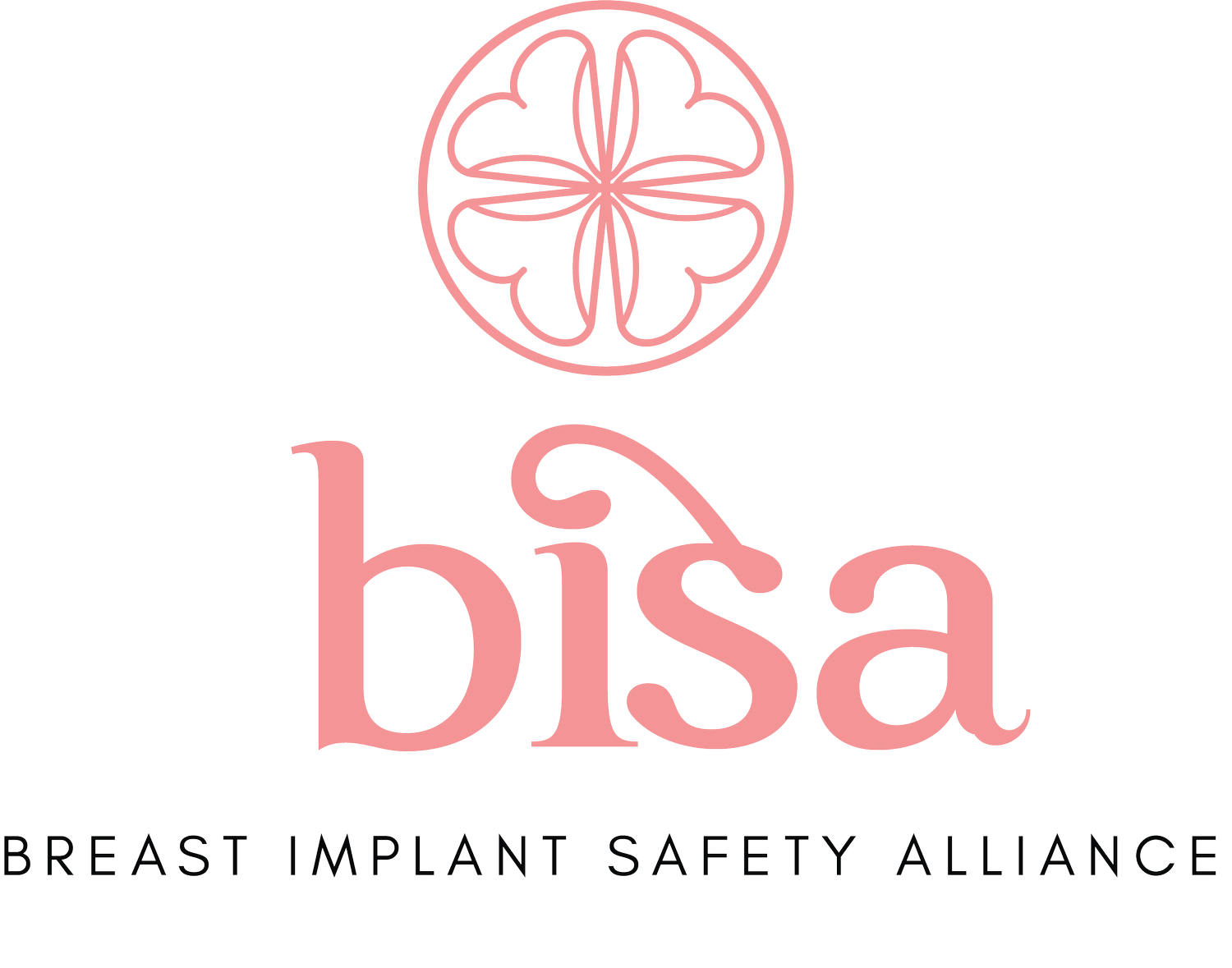Advocate Spotlight: Krisztina Eva Sajosi
Shaping Tomorrow: How A BIA-ALCL Journey Fuels Breast Implant Safety Advocacy
Krisztina Eva Sajosi’s story is one of resilience. A survivor of Breast Implant-Associated Anaplastic Large Cell Lymphoma (BIA-ALCL), she transformed her experience into a powerful mission to educate and protect women.
Krisztina has been steadfast in her pursuit of patient advocacy, working hard to spread awareness about the risks associated with breast implants.
For three years, she advocated at the annual World Consensus Conference on BIA-ALCL. Last April, she spoke virtually at the 5th World Consensus Conference on BIA-ALCL.
We’re proud to honor her as our May featured advocate! Learn more about her incredible work.
Breast Implants: The Beginning
Krisztina, a mother and a recruiting expert from Budapest, considered breast implants in 2012 after breastfeeding her two children for two years. She consulted three plastic surgeons in Hungary, none of whom informed her about the potential risk of BIA-ALCL — a “rare” but serious cancer.
She opted for textured NAGOR implants.
For years, Krisztina enjoyed life with the implants. She felt confident and healthy, engaging in competitive sailing, placing third in the European Cup in a sailing class while diligently maintaining her health through regular, yearly medical check-ups.
An Unexpected Diagnosis: BIA-ALCL
In 2020, Krisztina began experiencing unusual symptoms: endless fatigue, pain and itching, and swelling with fluid accumulation around her right breast. She felt serious pain in her hips and right arm, clocking it at an eight of 10.
“I felt really weird, and I didn't know what was happening in my body,” she shared in her virtual presentation.
Amid the closures of the pandemic, accessing medical help was almost impossible. After a couple of months, when she could go to a hospital, the initial tests, including blood tests, biopsies, and imaging, failed to provide answers. No doctors understood what was being seen.
Finally, after a series of inconclusive tests, other biopsies revealed Krisztina had BIA-ALCL Stage IV. It had metastasized to her bone marrow, and it was also Stage IV.
While she had advanced-stage cancer, it’s important to note:
Her lymphoma didn’t show up in any blood tests
She had normal values on tumor markers, mammography
The biopsy that revealed the BIA-ALCL was an ultrasound-guided core needle biopsy for a CD 30 immunohistochemistry test and ALK test. The results were CD30+ and ALK–.
A PET scan showed BIA-ALCL all over her body.
Krisztina underwent urgent surgery to remove both implants, capsules, a walnut-sized tumor, seven affected lymph nodes, and her right pectoral muscle.
Post-surgery, Krisztina prepared for six rounds of chemotherapy CHP-Brentuximab. In Hungary, the urgent approval of the Ministry of Health was required to access the special and very expensive treatment: Brentuximab vedotin within the chemotherapy.
By December 21, 2021, she was in complete metabolic remission.
BIA-ALCL Advocacy and Awareness
Krisztina’s experience highlighted significant gaps in the awareness and diagnosis of BIA-ALCL. Her mission became clear: to prevent other women from enduring similar challenges.
“I had the pleasure of meeting Krisztina at the 4th World Consensus Conference on BIA-ALCL in Houston in 2022,” Maria Gmitro said.
“Hearing her story in person was powerful and emotional. I’m so grateful she survived her battle with cancer caused by breast implants and continues to be a strong advocate for women.”
She advocates for better education of plastic surgeons on the symptoms of BIA-ALCL and pushes for standardized diagnostic protocols worldwide. She underscores the disparities in treatment options across different countries and the need for financial and emotional support for affected women.
“I was the only person in Hungary who had BIA-ALCL,” she explained. “In my case, they didn’t know what they found.”
Krisztina calls for stricter regulations on breast implants and transparent communication about the risks, urging long-term monitoring for all patients.
Even though she had a voluntary breast augmentation, she believes in knowledge sharing and the importance of education if someone wants to have a reconstruction after breast cancer.
“I'm very happy about the fact that there are different possibilities for breast augmentation,” she said, discussing the option for a DIEP flap reconstruction procedure. “Education has a crucial role in raising awareness about BIA-ALCL and helping anyone make the right, conscious decision.”
Krisztina’s Key Recommendations
Diagnosis — All plastic surgeons need to be informed about symptoms and how to diagnose BIA-ALCL (CD30, ALK TEST, PET SCAN).
Treatment — Access to different treatment options and coverage, despite location.
Regulation — A stricter environment with more transparent communication about risks.
Monitoring — Long-term monitoring to detect recurrence or complications over time.
Marketing — Widespread education on BIA-ALCL through various media, targeting different age groups.
Support — Additional help with finances, counseling, nutrition, etc.
Psychological — Support for uncertainty, fear, and emotional burden on patients and families.
Men's Role — Educate men as partners, fathers, and sons.. they can lose loved ones due to BIA-ALCL.
Shaping the Future
Krisztina’s advocacy extends beyond immediate medical concerns. She envisions a world where breast implant safety is a priority, informed choices are the norm, and survivors’ voices are integral to healthcare discussions.
“We have to find the right place to inform people, women and men about the risks,” she said.
She believes in peer networks. She praises the private support groups on platforms like Facebook, where brave women share their experiences and support one another. These groups are invaluable for learning and emotional solidarity.
She believes in educating not just women but men, too, as their lives and families can also be profoundly affected by the potentially fatal cancer.
Krisztina has strength and purpose, inspiring women to live authentically. She spends as much time as possible with her children, she started a new career teaching French, and she finds solace in nature.
Krisztina’s message is clear: life is beautiful, and it must be cherished now. She encourages women to make informed decisions about breast augmentation, to understand their choices, and to embrace their beauty. “We are all unique, no one can replace us.”
Krisztina Eva Sajosi’s story powerfully reminds us of the importance of awareness and education in breast implant safety. At BISA, we stand with Krisztina in her mission to inform, protect, and empower women.
We call on healthcare providers, policymakers, and the public to join us in this crucial effort. Together, we can empower others to make informed choices and save lives.
Q&A with Krisztina
What keeps you motivated to continue advocating?
The fact that there is still little who knows about this man-made cancer. I would like to see warnings in every plastic surgeon's cabinet about BIA-ALCL. All women should make a conscious, thought-out decision when they think about breast augmentation. It is their body, their life... We are all unique, no one can replace us!
If you only had a minute, what's one thing you would tell a woman who currently has breast implants?
Please get informed about the facts and symptoms of BIA-ALCL, ask your questions, and tell everyone it exists. If you ever feel fear, don't keep them. You have to choose between happiness or fear. It is your decision.
What do you imagine are the next steps in your advocacy journey?
Find others who had BIA-ALCL, and raise our voices together. I want to go to other medical conferences to share hope and reality about how I survived and how my family survived my cancer. I would like to show that we can all feel okay and happy with our conscious decision living with or without implants.
Questions? Krisztina can be reached by email at ksajosi@gmail.com.
For more information on BIA-ALCL and breast implant safety, please visit our website or contact us at contact@bisanonprofit.org.






